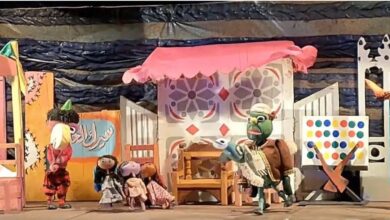During the holy month of Ramadan, Muslims are expected to fast during daylight hours, all the while continuing with their regular work or school activities. Needless to say, fasting Muslims look forward to their daily iftar, the meal they share with loved ones after sunset to break the day’s fast.
In Egypt, where the ideal iftar is hearty, multi-course, and includes at least some animal protein, vegetarian Muslims have to strategize to maintain their meatless diets. Inevitably, some succumb, if only temporarily, to the traditional culture of enjoying meat this time of year.
Mohamed al-Hebeishy, a 34-year-old photographer and journalist, says that even friends and family who invite him to iftar sometimes forget that he is a vegetarian. “The struggle I face during Ramadan is the fact that Egyptian cuisine revolves around meat,” he says.
How does Hebeishy respond to these potentially awkward moments?
“I usually joke it off,” he says.
Although traditional iftar is meat-centric, there are generally at least a few vegetarian options available even when hosts forget about their vegetarian guests’ dietary limitations. Thus, vegetarians like Hebeishy, don’t end up going home still hungry.
Hala Barakat, yoga enthusiast and deputy director of the Alexandria Library’s Center of Documentation of Cultural and Natural Heritage, says it is not that difficult to be a vegetarian in Egypt, because “In Egypt, there is a tradition of a lot of vegetarian dishes.”
She mentions Egyptian koshary – the rice, noodle, lentil, chickpea, onion, and tomato sauce staple – as an example.
Barakat, now 50, first became a vegetarian at the age of 18. Although she returned to eating animal protein while she raised her family, she is back to full-time vegetarianism. For a smooth iftar experience, Barakat lets her hosts know in advance that she is a vegetarian. “I warn people before I go, more so during Ramadan than other times,” she says.
Barakat admits that some flexibility is necessary. For example, she eats Egypt’s traditional molokhia stew when it is offered, although she knows that some type of meat-derived broth was probably used in its preparation.
Flexibility at the dinner table runs alongside diplomatic etiquette. Barakat tells of a recent dinner at the home of an Egyptian ambassador abroad. She hadn’t advised of her vegetarian status as she usually does, so all of the meal’s courses contained meat. Barakat simply pushed the meat aside during the first course, and explained why to her hosts. They removed the meat from the following courses, and even had their cook prepare a mushroom dish for Barakat.
“It was embarrassing for them,” Barakat says. Ultimately though, her hosts understood, as their daughter is also a vegetarian.
Barakat says she loves to experiment in the kitchen, so generally cooks for herself, reducing the potential for awkward iftars. Due to her propensity for cooking, Barakat is largely in control of what she eats, year-round. She eats the same foods all year round, and her diet doesn’t change during Ramadan, she says.
Unlike Barakat, 29-year-old Hicham Rahmah found it impossible to remain a vegetarian during this year’s Ramadan.
Rahmah, art director at Nahdet Misr Publishing Group, spent a week as a probationary vegetarian before fully adopting the title in February. Of that first week, he says, “It felt good eating without meat and chicken.”
But Rahmah’s mother has not been able to alter her traditional cooking style to accommodate her son’s new diet. Before Ramadan, Rahmah, who lives with his family, was able to maintain his vegetarianism largely by buying his meals outside of home. But now, during the most communal month of the year, Rahmah is eating iftar at home, and has given in to Egypt’s meat-centered culinary tradition.
“It’s so hard to eat this way during Ramadan,” Rahmah says of vegetarianism.
He plans on going back to his meatless diet after Ramadan, noting that he has gained weight this month. Besides affecting his physical appearance, Rahmah says, “It makes me nervous when I eat meat and chicken. When I was a vegetarian, I was so cool.”
Perhaps next year, Rahmah might apply another of Hala Barakat’s Ramadan strategies.
Besides cooking for herself, Barakat hosts meals for friends and family. She plans on hosting an iftar soon, and even anticipates the presence of her omnivorous loved ones, especially those who have eaten her vegetarian cooking before.
“They know it’s going to be good.”




